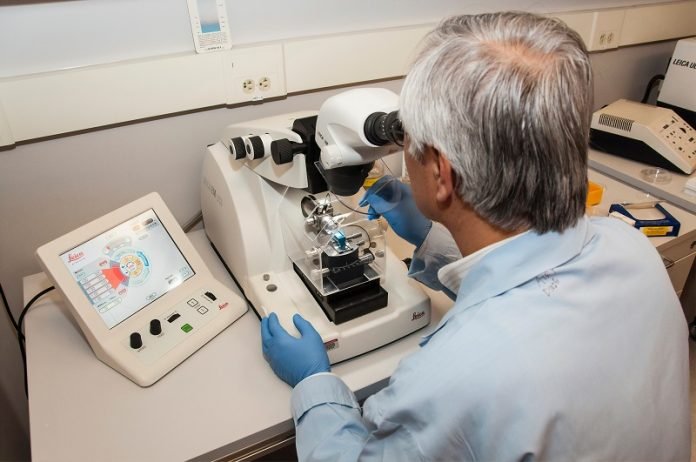
Cancer of the prostate, a small gland just below the bladder, is the second-leading cause of cancer-related death in men.
Many prostate tumors are not aggressive and may require no or minimal treatment. Aggressive tumors are initially treated with surgery or radiation therapy.
But in about one-third of patients, cancer comes back after initial treatment.
In a study from Cedars-Sinai Cancer, scientists found a new method that could be effective against treatment-resistant prostate cancer.
Patients with treatment-resistant prostate cancer are usually treated with medications that suppress the actions of testosterone and other androgens—male hormones that help prostate tumors grow.
In the study, the team figured out that the cancer cells were signaling to the surrounding supportive cells through a protein called CD105 to make these slice variant proteins.
They then conducted a trial in human patients to test a drug that they hoped would keep those partial proteins from forming by inhibiting CD105.
In the trial, nine patients whose tumors were resistant to androgen-blocking therapy continued that therapy but were also given a CD105 inhibitor called carotuximab.
Forty percent of those patients experienced progression-free survival, based on radiographic imaging.
The team says carotuximab prevented cancer’s workaround and made the tumor sensitive to androgen-suppressing therapy.
Importantly, carotuximab also appears to prevent androgen receptor splice variants in the supporting cells surrounding tumors, further sensitizing the tumor to the androgen suppressor.
The researchers also hope to find ways of predicting which patients are most likely to benefit from this approach by testing blood and tissue samples.
If you care about prostate cancer, please read studies that dairy foods may increase the risk of prostate cancer, and a new strategy to treat advanced prostate cancer.
For more information about prostate cancer, please see recent studies about new way to lower the risk of prostate cancer spread, and results showing vitamin D supplements strongly reduces cancer death.
The study was conducted by Neil Bhowmick et al and published in Molecular Therapy.
Copyright © 2022 Knowridge Science Report. All rights reserved.



